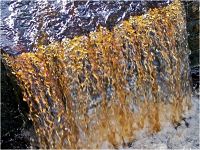
Dr Nicholas Howden
We hold and analyse some of the longest and most comprehensive water quality records in the world.
Dr Nicholas Howden, Faculty of Engineering, researched nitrogen and carbon export from the UK.
He found that the northern peatlands contain a vast amount of carbon and over the past 10,000 years this has been accumulating.
Recent observations suggest dissolved organic carbon export is increasing – but there is considerable uncertainty as to what is causing this.
 Bristol academics are using newly reconstructed long-term river water quality time series to identify previously unrecognised change drivers and to predict future carbon budget scenarios.
Bristol academics are using newly reconstructed long-term river water quality time series to identify previously unrecognised change drivers and to predict future carbon budget scenarios.
Additional research strengths from this project include modelling capabilities to forecast future climate and land-use impacts on water quality.